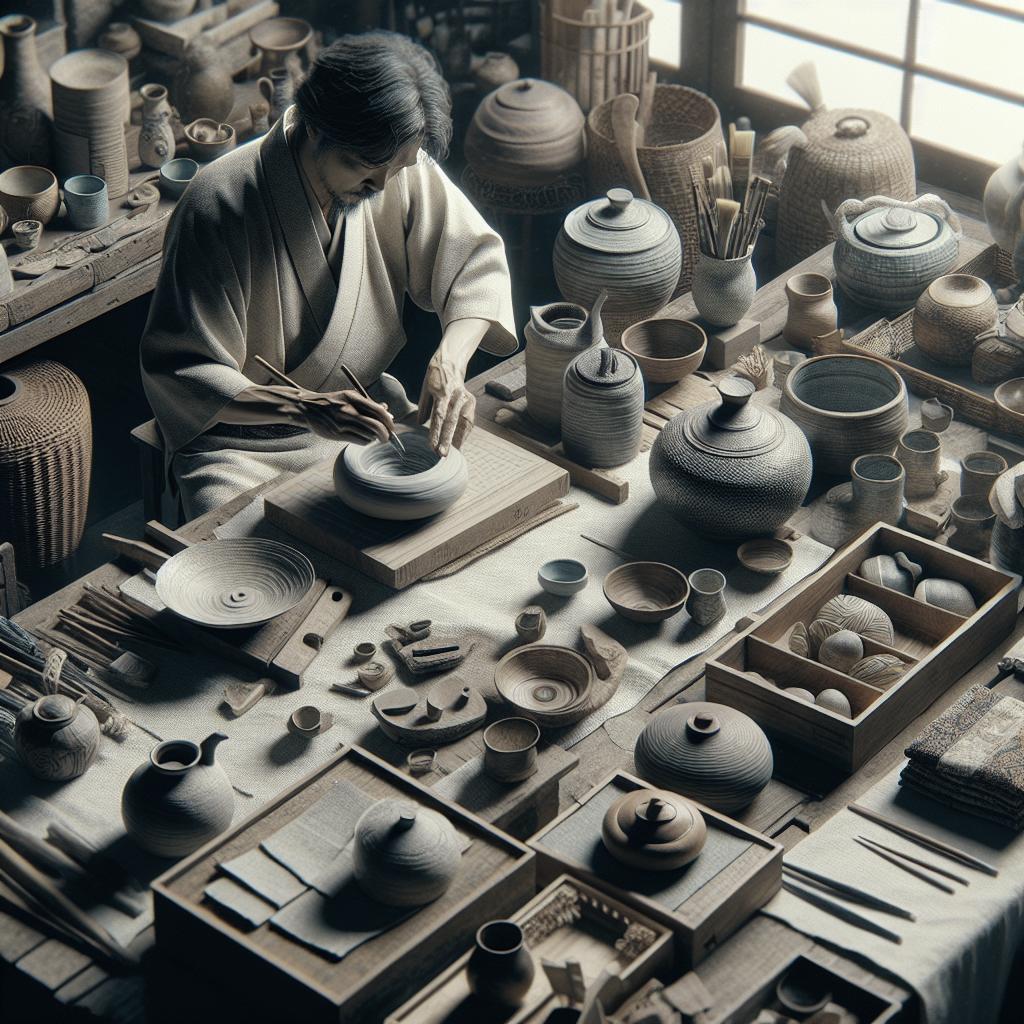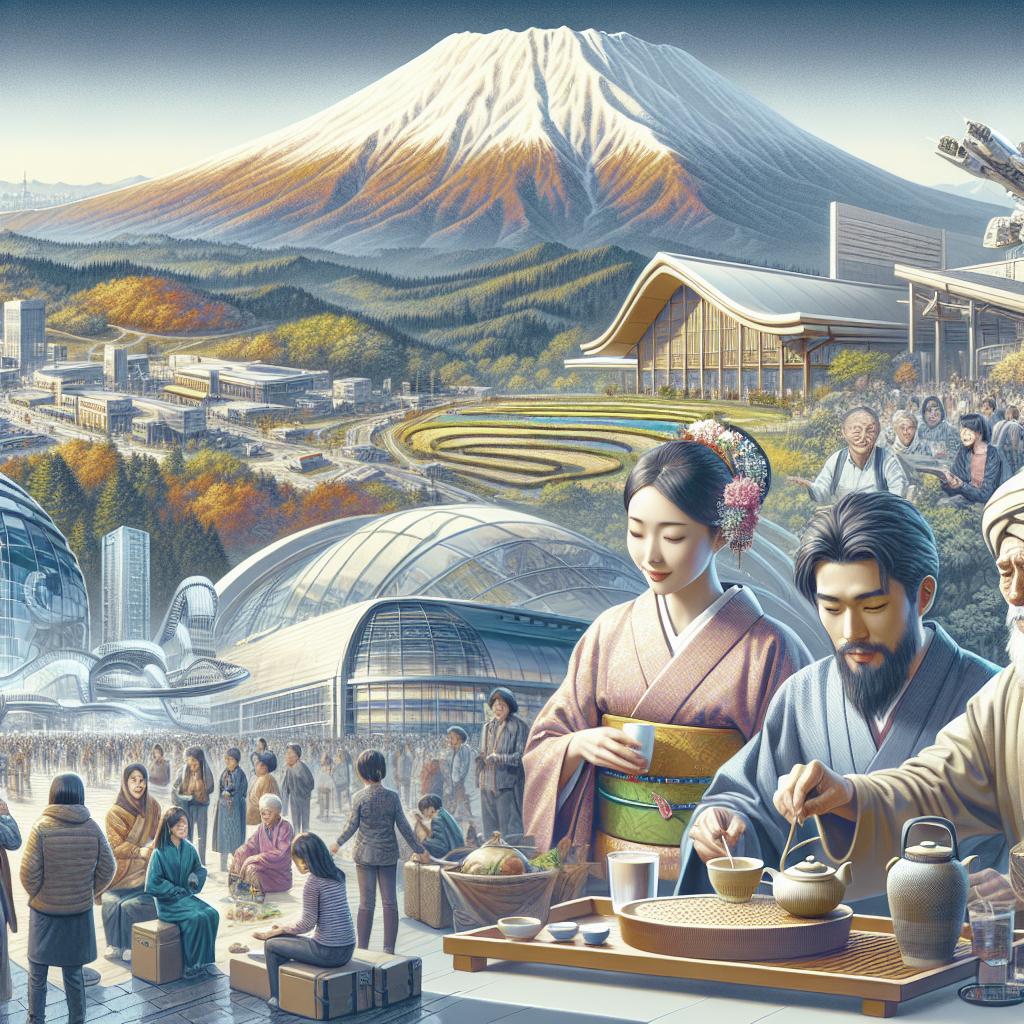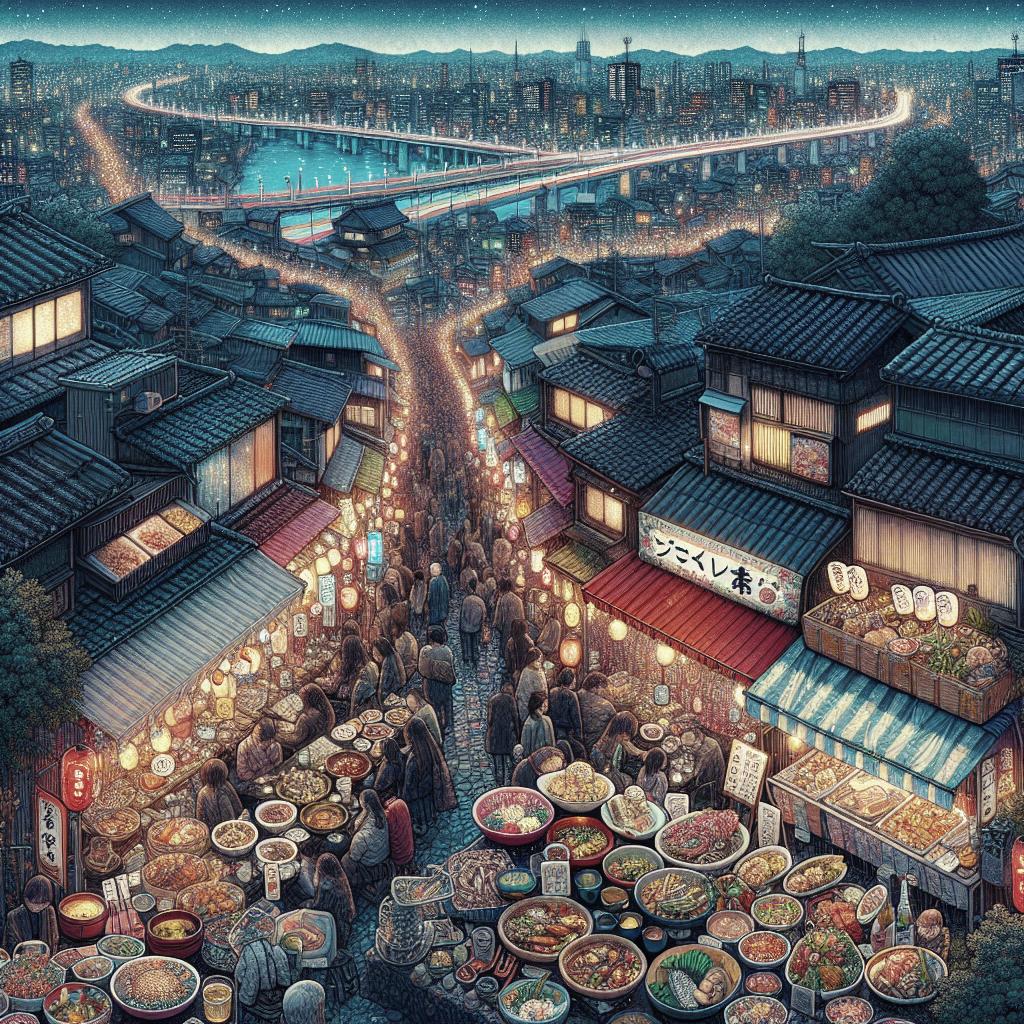“`html
New Discoveries! Traditional Japanese Crafts and Cuisine in Ibaraki
Discover the heart of traditional Japanese crafts right in the stunning locales of Ibaraki Prefecture. From the intricate artistry of hand-crafted paper lanterns to the hands-on experience of soba noodle making, Ibaraki offers a unique blend of culture and tradition. In this blog post, you’ll explore five remarkable workshops that let you dive into the rich Japanese craftsmanship. Join us as we tour from the paper lantern wonderland in Mito to the rustic charm of pottery in Kasama, embracing both ancient techniques and personal creativity. Whether you’re a traveler wanting to learn something new or a culture enthusiast eager to delve deep into Japanese traditions, these workshops promise an unforgettable experience.
1. Paper Lantern Workshop at Suzuki Mohei Shoten in Mito
Information
Dive into the serene and delightful world of traditional Japanese lanterns at Suzuki Mohei Shoten in Mito. Stepping into this family-run workshop, you’re greeted by a kaleidoscope of light and colors crafted with precision and dedication. Known for its historical ties to Japanese culture, the art of paper lantern making at Suzuki Mohei Shoten spans generations. Here, visitors can experience firsthand the delicate process of crafting these gentle illuminators.
The workshops are designed to be interactive, allowing participants to create their own unique lanterns under the guidance of master artisans. The use of washi paper, known for its translucent quality and durability, is fundamental in the creation process. Tradition meets innovation in these sessions, offering a perfect gateway to understanding the subtleties of Japanese aesthetic principles. Whether you’re a beginner or an enthusiast, the paper lantern workshop promises a genuinely illuminating experience.
2. Nishinouchi Paper Design Workshop at Kami no Sato in Hitachiomiya
Information
Nestled in the picturesque surroundings of Hitachiomiya lies Kami no Sato, a sanctuary of traditional papermaking, where the Nishinouchi paper design workshop awaits. This paper variant boasts a rich history, dating back to the Edo period, and is esteemed for its elegance and strength. The workshop invites you to step into this timeless craft, offering insights into the delicate process of papermaking that combines tradition with creativity.
Participants will learn about the intricate method of paper formation, from the selection of raw materials to the hands-on experience of creating beautiful paper designs. Each step is a testament to the skill and patience required to produce this coveted paper. Engaging with the artisans, you’ll discover the harmony of art and nature, as organic materials are transformed into exquisite paper sheets. The workshop is an enlightening journey into the world of Japanese fine arts, perfect for those looking to create something beautiful and lasting.
3. Soba Noodle Making at Soba Kobo in Hitachiota
Information
At Soba Kobo in Hitachiota, culinary artistry takes center stage with the simple yet profound flavor of soba noodles. Dive into the art of noodle making, where you’ll uncover the delicate balance between technique and taste. This hands-on workshop not only teaches the essentials of creating soba from scratch but also immerses you in the history and cultural significance of this beloved Japanese dish.
Each session at Soba Kobo is a sensory delight, from the comforting aroma of buckwheat flour to the satisfying feel of kneading dough. Under the guidance of skilled soba artisans, you’ll learn to roll, cut, and cook the noodles, culminating in a deliciously authentic meal. This workshop is a culinary adventure that offers both a feast for the senses and a true appreciation for the craft of Japanese cooking.
4. Hands-on Activity at Yuba no Sato, a Bean Curd Skin Factory in Daigo
Information
In the serene settings of Daigo, the Yuba no Sato provides an intriguing exploration into the world of yuba, a delicate soybean product known as bean curd skin. This hands-on activity offers an insider’s look into traditional Japanese vegetarian cuisine, celebrated for its nutritional value and delicate texture. Visitors are invited to witness the step-by-step process of yuba production and, most excitingly, try their hand at crafting their own.
The visit to Yuba no Sato is both educational and interactive, presenting the artisanal skill behind creating yuba, which involves simmering soy milk to produce the thin sheets that are later dried and rolled. Participants can taste and appreciate this unique product, known for its subtle flavors that complement various dishes. This activity not only enhances your culinary skills but also offers a deeper connection to Japan’s traditional food culture.
5. Pottery Workshop at Fukuda Kiln in Kasama
Shaping pottery items without using a potter’s wheel (1,500 yen/person)
Creating an item using the potter’s wheel (2,800 yen/person)
Ceramics design (500 yen/person)
Information
Kasama is renowned for its pottery, and the Fukuda Kiln offers an immersive experience into this traditional craft. The workshop provides an opportunity for participants to mold and design pottery items, embracing both traditional techniques and personal creativity. At Fukuda Kiln, there are various courses tailored for all experience levels, promising an enriching experience within the serene ambiance of Kasama.
From hand-shaping pottery without the need for a potter’s wheel to exploring the precision of wheel-thrown creations, every aspect of pottery craft is meticulously addressed. Participants can decorate their finished pieces, adding a personal touch to the ceramics. This workshop is a celebration of creative expression and a tribute to the enduring appeal of Japanese pottery, delivering a lasting keepsake of your journey into the arts.
Explore Japanese Culture Through Hands-on Activities in Ibaraki!
Ibaraki stands as a gateway to Japan’s rich cultural heritage, offering an array of hands-on activities that blend artistry with history. By participating in these workshops, you not only acquire new skills but also gain a deeper understanding of the meticulous methods that have been passed down through generations. Whether you are an aspiring artist or a cultural enthusiast, these experiences offer new perspectives and inspirations.
As you delve into these traditional crafts, you’ll find yourself captivated by the delicate dance between form and function that is at the heart of Japanese craftsmanship. These workshops in Ibaraki are more than mere activities; they are gateways to a profound appreciation of Japanese culture, inviting you to take part in its timeless beauty.
See More Posts
If you’re eager to continue exploring the diverse and rich traditions of Japan, be sure to check out more posts on unique cultural experiences awaiting you across this breathtaking country. Each post delves deeper into Japan’s vibrant culture, offering insights and opportunities to engage with art forms that have shaped Japanese history and identity.
Future Prospects
| Workshop | Location | Activity | Cost |
|---|---|---|---|
| Paper Lantern Workshop | Mito | Guided lantern crafting | Varies |
| Nishinouchi Paper Design Workshop | Hitachiomiya | Paper formation and design | Varies |
| Soba Noodle Making | Hitachiota | Hands-on soba preparation | Varies |
| Yuba Making Activity | Daigo | Yuba production and tasting | Varies |
| Pottery Workshop | Kasama | Pottery crafting sessions | 1,500-2,800 yen/person |
“`


